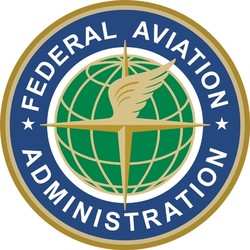InFO Directed At Part 121 Certificate Holders Operating Under Part 117
The FAA has posted an Information For Operators (InFO) reminding part 121 certificate holders conducting operations under part 117 that the deadline for initial FAA approval of the certificate holder’s fatigue education and awareness training program is January 31, 2015.

All part 121 certificate holders, regardless of whether it conducts passenger-carrying or all-cargo operations, develop and update a Fatigue Risk Management Plan (FRMP). Under this statute, the FAA either accepts or rejects the part 121 certificate holder’s FRMP. Once accepted, the certificate holder must update its FRMP every 24-calendar months. The statute requires the certificate holder’s FRMP contain a fatigue education and awareness training program to increase a flightcrew member’s awareness of fatigue, the effects of fatigue on pilots, and fatigue countermeasures. The FRMP is an accepted document, as prescribed in the statute. The certificate holder is required to provide its flightcrew members with the required training in accordance with its FAA-accepted FRMP every 12-calendar months.
Part 117, Flightcrew Member Duty and Rest Requirements, effective January 4, 2014, applies to all part 121 certificate holders conducting passenger-carrying operations, and any part 121 certificate holder conducting all-cargo operations that voluntarily adopts into part 117. Each part 121 certificate holder conducting operations under part 117 is required under § 117.9 to have an FAA-approved fatigue education and awareness training program. Once approved, the certificate holder will be issued operations specification (OpSpec) A319, Part 117 Fatigue Education and Awareness Training Program Update and Approval, signifying approval of the training program.
Part 117 adopted the same standard of training as required by P.L. 111-216, § 212(b). However, there are some differences between the requirements of P.L. 111-216. § 212(b) and part 117 with regard to fatigue education and awareness training.
- Part 117 requires the training program to be approved prior to implementation.
- Part 117 requires the certificate holder to provide fatigue education and awareness training to all of its covered employees, not just flight crewmembers, every 12-calendar months. Covered employees are defined as those responsible for administering the provisions of part 117 including flightcrew members, dispatchers, individuals directly involved in the scheduling of flightcrew members, individuals directly involved in operational control, and any employee providing direct management oversight of those areas. If the certificate holder applies the limits of part 117 to its flight attendants, they are also considered a covered employee and therefore, require training in accordance with the certificate holder’s FAA-approved training program every 12-calendar months.
- Subsection 117.9(a) requires FAA approval of the certificate holder’s initial fatigue education and awareness training program prior to implementation. The training program outline should be identical to the elements outlined in paragraph (l.) of the certificate holder’s OpSpec A317 (Acceptance of a Fatigue Risk Management Plan). The training program must be updated at least once every 24 calendar months. If the FAA rejects a training program submission, the certificate holder must be provided with suggested modifications for resubmission.
After initial approval, minor changes to the program only require FAA-acceptance. The FAA considers minor changes to include spelling and grammatical errors, changes to contact information, typos, and reformatting of the content. Minor changes are to be submitted to the principal operations inspector (POI) for review and acceptance. Any change that does not meet the criteria for a minor change is considered to be a major change. The FAA emphasizes that any major change to a certificate holder’s training program would be considered a new program and requires FAA approval before it may be implemented. New training programs and major changes must be submitted for review and approval to the Air Transportation Division, AFS-200, at 9-AFS-200-FRMP-FRMS@FAA.GOV. The certificate holder should copy the POI when making submissions to AFS-200.
Directors of operations for part 121 certificate holders conducting operations under part 117 should ensure that its fatigue education and awareness training program is submitted to the FAA for initial approval. The program must be approved no later than January 31, 2015. The program should be submitted to AFS-200 as a stand-alone document. The training program outline should include the elements outlined in paragraph (l.) of its OpSpec A317. The program submission should include applicable courseware, the covered employees that require this training under the provisions of §117.9(a), the training frequency (not to exceed 12 calendar months for covered employees) under the provisions of § 117.9(a), update requirements required under §117.9(c)(1), and a process for revising and controlling each approval and update to the training program.
 True Blue Power and Mid-Continent Instruments and Avionics Power NBAA25 Coverage
True Blue Power and Mid-Continent Instruments and Avionics Power NBAA25 Coverage ANN's Daily Aero-Term (10.15.25): En Route Automation System (EAS)
ANN's Daily Aero-Term (10.15.25): En Route Automation System (EAS) Aero-News: Quote of the Day (10.15.25)
Aero-News: Quote of the Day (10.15.25) ANN's Daily Aero-Linx (10.15.25)
ANN's Daily Aero-Linx (10.15.25) NTSB Final Report: Jeremy S Lezin Just SuperSTOL
NTSB Final Report: Jeremy S Lezin Just SuperSTOL



